Israel’s zealots are ignoring the pleas of the top brass. They want to widen the circle of war, whatever the consequences.
ANALYSIS: By Jonathan Cook in Middle East Eye
There should be nothing surprising about the revelation that troops at Sde Teiman, a detention camp set up by Israel in the wake of Hamas’s October 7 attack on southern Israel, are routinely using rape as a weapon of torture against Palestinian inmates.
Last month, nine soldiers from a prison unit, Force 100, were arrested for gang-raping a Palestinian inmate with a sharp object. He had to be hospitalised with his injuries.
At least 53 prisoners are known to have died in Israeli detention, presumed in most cases to be either through torture or following the denial of access to medical care. No investigations have been carried out by Israel and no arrests have been made.
Why should it be of any surprise that Israel’s self-proclaimed “most moral army in the world” uses torture and rape against Palestinians? It would be truly surprising if this was not happening.
After all, this is the same military that for 10 months has used starvation as a weapon of war against the 2.3 million people of Gaza, half of them children.
It is the same military that since October has laid waste to all of Gaza’s hospitals, as well as destroying almost all of its schools and 70 percent of its homes. It is the same military that is known to have killed over that period at least 40,000 Palestinians, with a further 21,000 children missing.
It is the same military currently on trial for genocide at the International Court of Justice (ICJ), the highest court in the world.
No red lines
If there are no red lines for Israel when it comes to brutalising Palestinian civilians trapped inside Gaza, why would there be any red lines for those kidnapped off its streets and dragged into its dungeons?
I documented some of the horrors unfolding in Sde Teiman in these pages back in May.
Months ago, the Israeli media began publishing testimonies from whistleblowing guards and doctors detailing the depraved conditions there.
The International Committee of the Red Cross has been denied access to the detention camp, leaving it entirely unmonitored.
The United Nations published a report on July 31 into the conditions in which some 9400 captive Palestinians have been held since last October. Most have been cut off from the outside world, and the reason for their seizure and imprisonment was never provided.
The report concludes that “appalling acts” of torture and abuse are taking place at all of Israel’s detention centres, including sexual violence, waterboarding and attacks with dogs.
The authors note “forced nudity of both men and women; beatings while naked, including on the genitals; electrocution of the genitals and anus; being forced to undergo repeated humiliating strip searches; widespread sexual slurs and threats of rape; and the inappropriate touching of women by both male and female soldiers”.
There are, according to the investigation, “consistent reports” of Israeli security forces “inserting objects into detainees’ anuses”.
Children sexually abused
Last month, Save the Children found that many hundreds of Palestinian children had been imprisoned in Israel, where they faced starvation and sexual abuse.
And this week B’Tselem, Israel’s main human rights group monitoring the occupation, produced a report — titled “Welcome to Hell” — which included the testimonies of dozens of Palestinians who had emerged from what it called “inhuman conditions”. Most had never been charged with an offence.
It concluded that the abuses at Sde Teiman were “just the tip of the iceberg”. All of Israel’s detention centres formed “a network of torture camps for Palestinians” in which “every inmate is intentionally condemned to severe, relentless pain and suffering”. It added that this was “an organised, declared policy of the Israeli prison authorities”.
Tal Steiner, head of the Public Committee Against Torture in Israel, which has long campaigned against the systematic torture of Palestinian detainees, wrote last week that Sde Teiman “was a place where the most horrible torture we had ever seen was occurring”.
In short, it has been an open secret in Israel that torture and sexual assault are routine at Sde Teiman.
The abuse is so horrifying that last month Israel’s High Court ordered officials to explain why they were operating outside Israel’s own laws governing the internment of “unlawful combatants”.
The surprise is not that sexual violence is being inflicted on Palestinian captives. It is that Israel’s top brass ever imagined the arrest of Israeli soldiers for raping a Palestinian would pass muster with the public.
Toxic can of worms
Instead, by making the arrests, the army opened a toxic can of worms.
The arrests provoked a massive backlash from soldiers, politicians, Israeli media, and large sections of the Israeli public.
Rioters, led by members of the Israeli Parliament, broke into Sde Teiman. An even larger group, including members of Force 100, tried to invade a military base, Beit Lid, where the soldiers were being held in an attempt to free them.
The police, under the control of Itamar Ben Gvir, a settler leader with openly fascist leanings, delayed arriving to break up the protests. Ben Gvir has called for Palestinian prisoners to be summarily executed — or killed with “a shot to the head” — to save on the costs of holding them.
No one was arrested over what amounted to a mutiny as well as a major breach of security.
Bezalel Smotrich, Israel’s finance minister, helped whip up popular indignation, denouncing the arrests and describing the Force 100 soldiers as “heroic warriors”.
Other prominent cabinet ministers echoed him.
Three soldiers freed
Already, three of the soldiers have been freed, and more will likely follow.
The consensus in Israel is that any abuse, including rape, is permitted against the thousands of Palestinians who have been seized by Israel in recent months — including women, children and many hundreds of medical personnel.
That consensus is the same one that thinks it fine to bomb Palestinian women and children in Gaza, destroy their homes and starve them.
Such depraved attitudes are not new. They draw on ideological convictions and legal precedents that developed through decades of Israel’s illegal occupation. Israeli society has completely normalised the idea that Palestinians are less than human and that any and every abuse of them is allowed.
Hamas’s attack on October 7 simply brought the long-standing moral corruption at the core of Israeli society more obviously out into the open.
In 2016, for example, the Israeli military appointed Colonel Eyal Karim as its chief rabbi, even after he had declared Palestinians to be “animals” and had approved the rape of Palestinian women in the interest of boosting soldiers’ morale.
Religious extremists, let us note, increasingly predominate among combat troops.
Compensation suit dismissed
In 2015, Israel’s Supreme Court dismissed a compensation suit from a Lebanese prisoner that his lawyers submitted after he was released in a prisoner swap. Mustafa Dirani had been raped with a baton 15 years earlier in a secret jail known as Facility 1391.
Despite Dirani’s claim being supported by a medical assessment from the time made by an Israeli military doctor, the court ruled that anyone engaged in an armed conflict with Israel could not make a claim against the Israeli state.
Meanwhile, human and legal rights groups have regularly reported cases of Israeli soldiers and police raping and sexually assaulting Palestinians, including children.
A clear message was sent to Israeli soldiers over many decades that, just as the genocidal murder of Palestinians is considered warranted and “lawful”, the torture and rape of Palestinians held in captivity is considered warranted and “lawful” too.
Understandably, there was indignation that the long-established “rules” — that any and every atrocity is permitted — appeared suddenly and arbitrarily to have been changed.
The biggest question is this: why did the Israeli military’s top legal adviser approve opening an investigation into the Force 100 soldiers — and why now?
The answer is obvious. Israel’s commanders are in panic after a spate of setbacks in the international legal arena.
‘Plausible’ Gaza genocide
The ICJ, sometimes referred to as the World Court, has put Israel on trial for committing what it considers a “plausible” genocide in Gaza.
Separately, it concluded last month that Israel’s 57-year occupation is illegal and a form of aggression against the Palestinian people. Gaza never stopped being under occupation, the judges ruled, despite claims from its apologists, including Western governments, to the contrary.
Significantly, that means Palestinians have a legal right to resist their occupation. Or, to put it another way, they have an immutable right to self-defence against their Israeli occupiers, while Israel has no such right against the Palestinians it illegally occupies.
Israel is not in “armed conflict” with the Palestinian people. It is brutally occupying and oppressing them.
Israel must immediately end the occupation to regain such a right of self-defence — something it demonstrably has no intention to do.
Meanwhile, the chief prosecutor of the International Criminal Court (ICC), the ICJ’s sister court, is actively seeking arrest warrants for Israeli Prime Minister Benjamin Netanyahu and his Defence Minister, Yoav Gallant, for war crimes.
The various cases reinforce each other. The World Court’s decisions are making it ever harder for the ICC to drag its feet in issuing and expanding the circle of arrest warrants.
Countervailing pressures
Both courts are now under enormous, countervailing pressures.
On the one side, massive external pressure is being exerted on the ICJ and ICC from states such as the US, Britain and Germany that are prepared to see the genocide in Gaza continue.
And on the other, the judges themselves are fully aware of what is at stake if they fail to act.
The longer they delay, the more they discredit international law and their own role as arbiters of that law. That will give even more leeway for other states to claim that inaction by the courts has set a precedent for their own right to commit war crimes.
International law, the entire rationale for the ICJ and ICC’s existence, stands on a precipice. Israel’s genocide threatens to bring it all crashing down.
Israel’s top brass stand in the middle of that fight.
They are confident that Washington will block at the UN Security Council any effort to enforce the ICJ rulings against them — either a future one on genocide in Gaza or the existing one on their illegal occupation.
No US veto at ICC
But arrest warrants from the ICC are a different matter. Washington has no such veto. All states signed up to the ICC’s Rome Statute – that is, most of the West, minus the US — will be obligated to arrest Israeli officials who step on their soil and to hand them over to The Hague.
Israel and the US had been hoping to use technicalities to delay the issuing of the arrest warrants for as long as possible. Most significantly, they recruited the UK, which has signed the Rome Statute, to do their dirty work.
It looked like the new UK government under Keir Starmer would continue where its predecessor left off by tying up the court in lengthy and obscure legal debates about the continuing applicability of the long-dead, 30-year-old Oslo Accords.
A former human rights lawyer, Starmer has repeatedly backed Israel’s “plausible” genocide, even arguing that the starvation of Gaza’s population, including its children, could be justified as “self-defence” — an idea entirely alien to international law, which treats it as collective punishment and a war crime.
But now with a secure parliamentary majority, even Starmer appears to be baulking at being seen as helping Netanyahu personally avoid arrest for war crimes.
The UK government announced late last month that it would drop Britain’s legal objections at the ICC.
That has suddenly left both Netanyahu and the Israeli military command starkly exposed — which is the reason they felt compelled to approve the arrest of the Force 100 soldiers.
Top prass pretexts
Under a rule known as “complementarity”, Israeli officials might be able to avoid war crimes trials at The Hague if they can demonstrate that Israel is able and willing to prosecute war crimes itself. That would avert the need for the ICC to step in and fulfil its mandate.
The Israeli top brass hoped they could feed a few lowly soldiers to the Israeli courts and drag out the trials for years. In the meantime, Washington would have the pretext it needed to bully the ICC into dropping the case for arrests on the grounds that Israel was already doing the job of prosecuting war crimes.
The patent problem with this strategy is that the ICC isn’t primarily interested in a few grunts being prosecuted in Israel as war criminals, even assuming the trials ever take place.
At issue is the military strategy that has allowed Israel to bomb Gaza into the Stone Age. At issue is a political culture that has made starving 2.3 million people seem normal.
At issue is a religious and nationalistic fervour long cultivated in the army that now encourages soldiers to execute Palestinian children by shooting them in the head and chest, as a US doctor who volunteered in Gaza has testified.
At issue is a military hierarchy that turns a blind eye to soldiers raping and sexually abusing Palestinian captives, including children.
The buck stops not with a handful of soldiers in Force 100. It stops with the Israeli government and military leaders. They are at the top of a command chain that has authorised war crimes in Gaza for the past 10 months – and before that, for decades across the occupied territories.
What is at stake
This is why observers have totally underestimated what is at stake with the rulings of the ICC and ICJ.
These judgments against Israel are forcing out into the light of day for proper scrutiny a state of affairs that has been quietly accepted by the West for decades. Should Israel have the right to operate as an apartheid regime that systematically engages in ethnic cleansing and the murder of Palestinians?
A direct answer is needed from each Western capital. There is nowhere left to hide. Western states are being presented with a stark choice: either openly back Israeli apartheid and genocide, or for the first time withdraw support.
The Israeli far-right, which now dominates both politically and in the army’s combat ranks, cares about none of this. It is immune to pressure. It is willing to go it alone.
As the Israeli media has been warning for some time, sections of the army are effectively now turning into militias that follow their own rules.
Israel’s military commanders, on the other hand, are starting to understand the trap they have set for themselves. They have long cultivated fascistic zealotry among ground troops needed to dehumanise and better oppress Palestinians living under Israeli occupation. But the war crimes proudly being live-streamed by their units now leave them exposed to the legal consequences.
Israel’s international isolation means a place one day for them in the dock at The Hague.
Israeli society’s demons exposed
The ICC and ICJ rulings are not just bringing Israeli society’s demons out into the open, or those of a complicit Western political and media class.
The international legal order is gradually cornering Israel’s war machine, forcing it to turn in on itself. The interests of the Israeli military command are now fundamentally opposed to those of the rank and file and the political leadership.
The result, as military expert Yagil Levy has long warned, will be an increasing breakdown of discipline, as the attempts to arrest Force 100 soldiers demonstrated all too clearly.
The Israeli military juggernaut cannot be easily or quickly turned around.
The military command is reported to be furiously trying to push Netanyahu into agreeing on a hostage deal to bring about a ceasefire — not because it cares about the welfare of Palestinian civilians, or the hostages, but because the longer this “plausible” genocide continues, the bigger chance the generals will end up at The Hague.
Israel’s zealots are ignoring the pleas of the top brass. They want not only to continue the drive to eliminate the Palestinian people but to widen the circle of war, whatever the consequences.
That included the reckless, incendiary move last month to assassinate Hamas leader Ismail Haniyeh in Iran — a provocation with one aim only: to undermine the moderates in Hamas and Tehran.
If, as seems certain, Israel’s commanders are unwilling or incapable of reining in these excesses, then the World Court will find it impossible to ignore the charge of genocide against Israel and the ICC will be compelled to issue arrest warrants against more of the military leadership.
A logic has been created in which evil feeds on evil in a death spiral. The question is how much more carnage and misery can Israel spread on the way down.
Jonathan Cook is a writer, journalist and self-appointed media critic and author of many books about Palestine. Winner of the Martha Gellhorn Special Prize for Journalism. Republished from the author’s blog with permission.
This content originally appeared on Asia Pacific Report and was authored by APR editor.
This post was originally published on Radio Free.


 (@AndyGJBurge)
(@AndyGJBurge) 

 (@___Riz1902)
(@___Riz1902)  (@citamo)
(@citamo) 












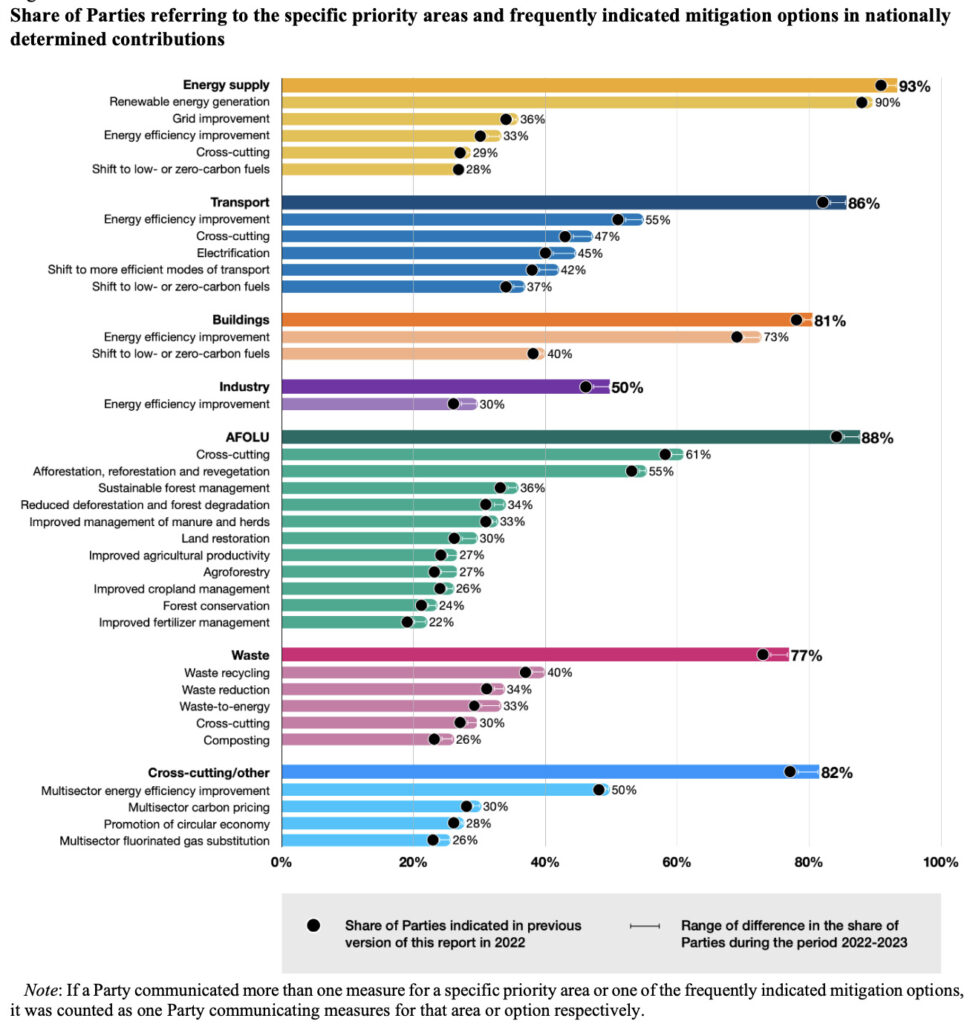
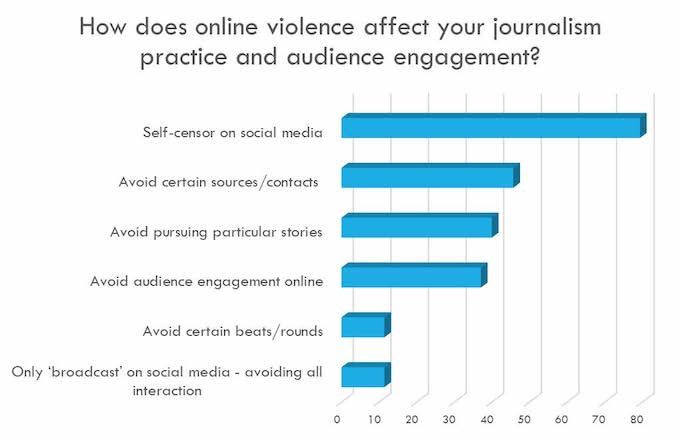
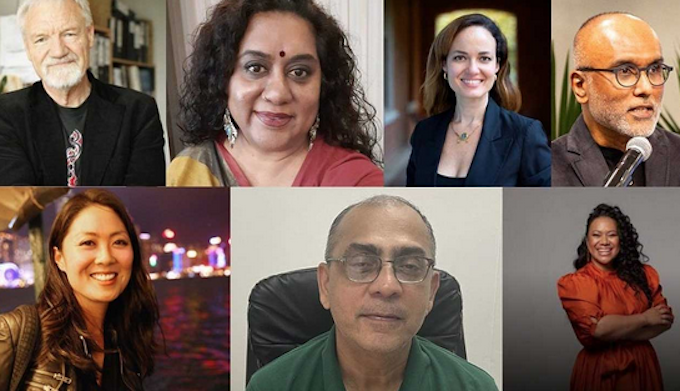




 (@uriohau)
(@uriohau) 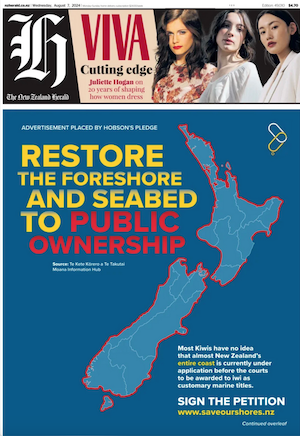
 RIP
RIP (@crashballcentre)
(@crashballcentre) 

 (@WillBlackWriter)
(@WillBlackWriter)  (@holte)
(@holte) 
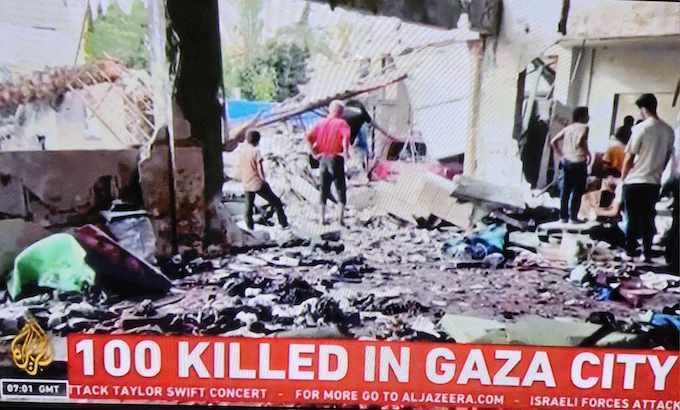
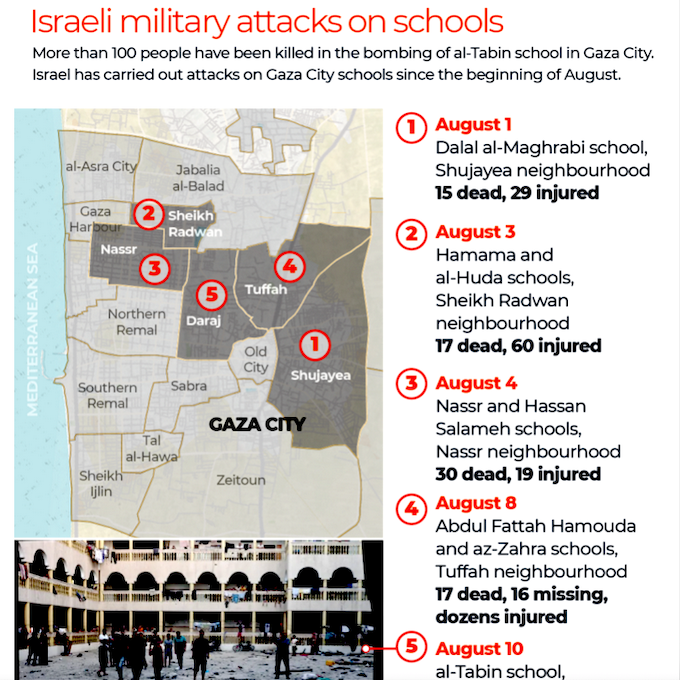
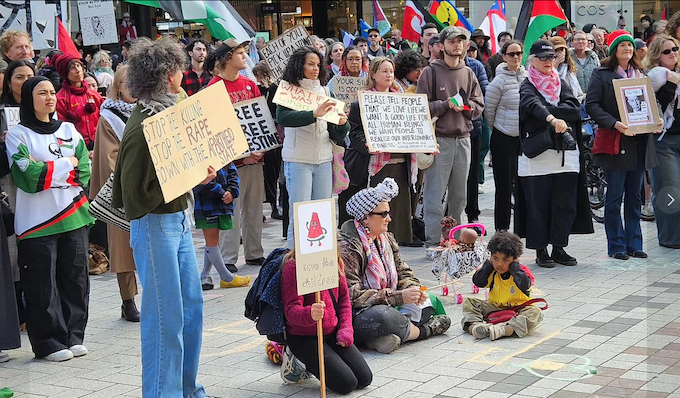
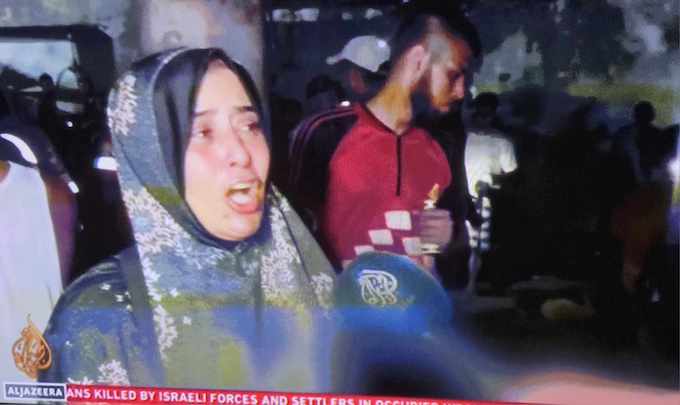
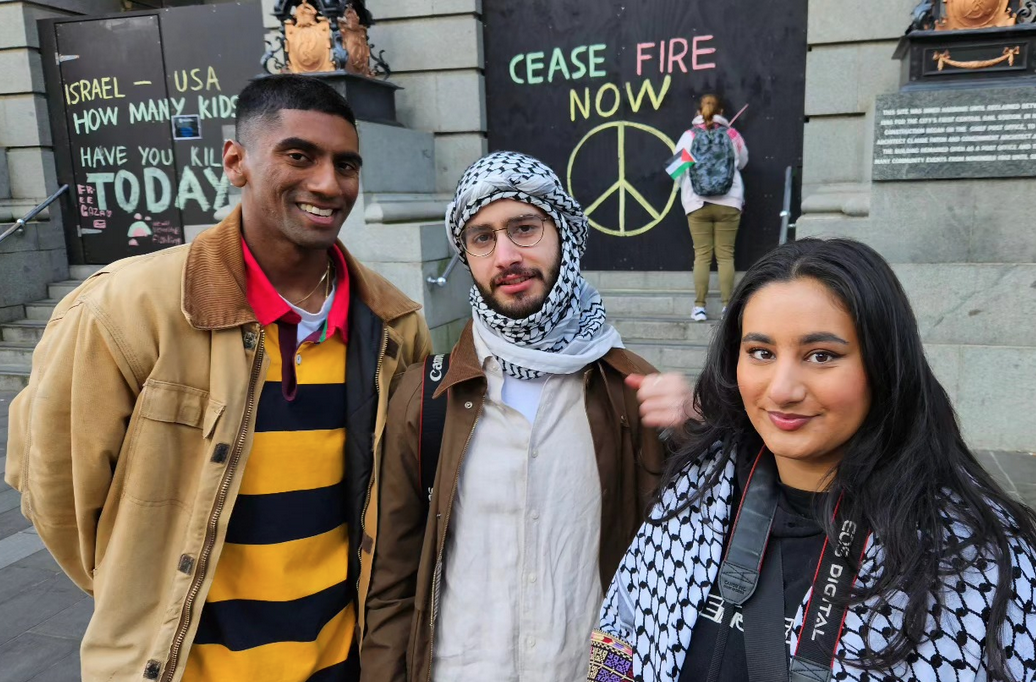
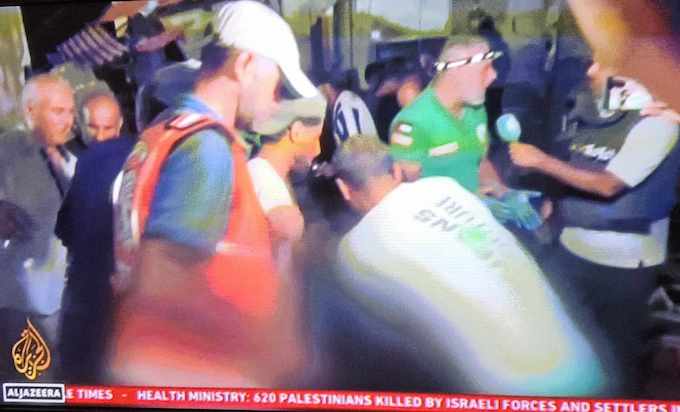

 SHOCKING
SHOCKING